A new National Safety Council report reveals 39 states did not go far enough to protect residents from the century’s biggest threat to safety. Despite COVID-19 claiming more lives than accidental drug overdoses, motor vehicle crashes and falls combined, the State of Response: State Actions to Address the Pandemic report uncovers an inconsistent approach that has jeopardized safety – and may have imperiled it for years to come – due to the pandemic’s impact on issues such as addiction, traffic and workplace safety.
Only 12 states received an ‘on-track’ rating from NSC, with New Mexico, New York, California, Rhode Island and Washington leading the pack with the highest overall ratings. Ten states received an ‘off-track’ rating, with Mississippi and South Dakota receiving the lowest overall rating. Twenty-eight states and the District of Columbia fell into the middle ‘lagging’ category.
“Many states have shown ingenuity and grit when it comes to protecting citizens, while others fell short,” said Lorraine M. Martin, president and CEO of the National Safety Council. “This report is intended not as a condemnation but as a challenge to states to learn from each other and do better – and a reminder to employers that our workers are the lifeblood of our country, and their safety is paramount. By coming together, we believe states can improve overall safety and health outcomes and strengthen our economic recovery.”
The report assessed states’ efforts in five key areas based on recommendations from the SAFER effort, created by NSC to provide much-needed guidance to businesses as they manage through this crisis. NSC evaluated states on how effectively they performed in employer guidelines, testing, contact tracing, mental health and substance use, and roadway safety. Each state’s overall rating was calculated based on the summary of its ratings in each key area, and, using that data, was given an ‘on-track,’ ‘lagging’ or ‘off-track’ distinction.
The states with the most and least comprehensive employer guidelines are:
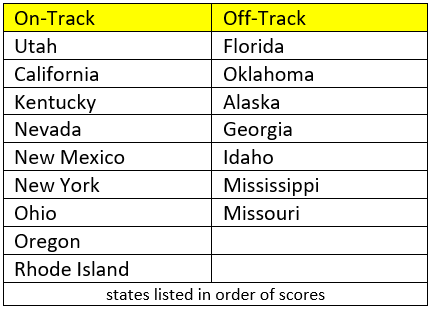
The states with the best and lowest ratings for testing criteria are:
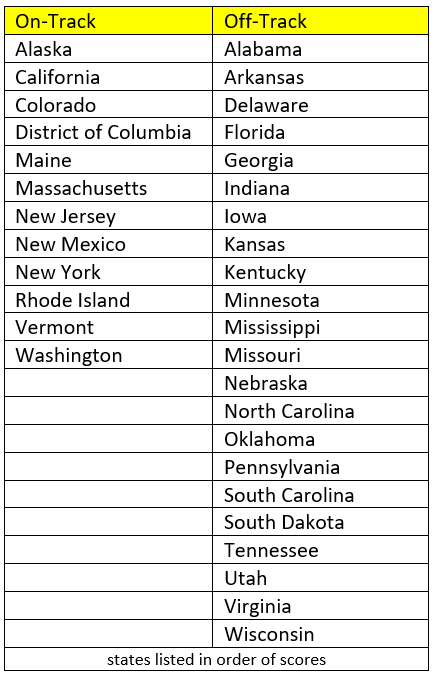
The states with the best and lowest ratings for contact tracing are:
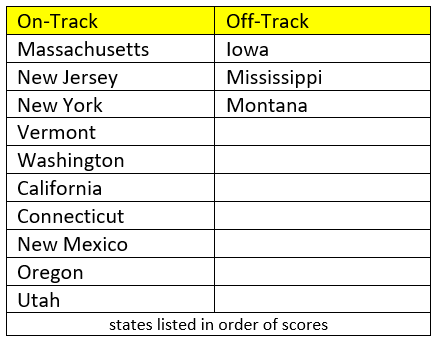
The states with the best and lowest ratings for addressing mental health are:
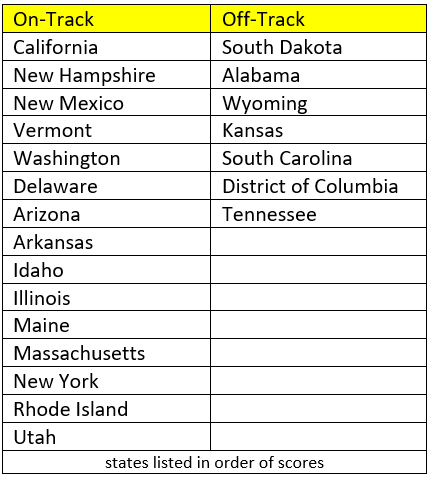
The states with the best and lowest ratings for roadway safety are:
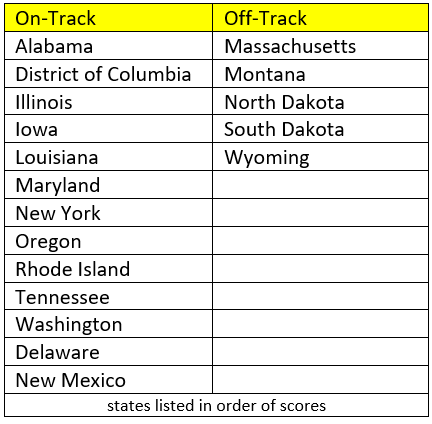
The report also highlights best practices and includes recommendations on ways states can better address these issues, including engaging workplaces, increasing testing and contact tracing capacity, supporting mental health of all citizens and doubling down on roadway safety best practices.
NSC created the SAFER: Safe Actions for Employee Returns effort in April to provide businesses with guidance, tools, and solutions to help them better navigate the pandemic. NSC also monitored the collective efforts to keep Americans safe and healthy. To share the broader implications of our national response to the COVID-19 pandemic, NSC will host the State of COVID-19 Response Summit, presented by SAFER on December 9. Aimed at helping businesses, policymakers and leaders, the summit will feature new reports and offer solutions for working together to keep workplaces safer across the country today and long after this crisis has ended.
To read the full report, view the methodology and learn more about the upcoming summit, visit here.



